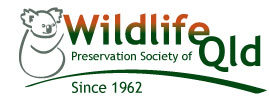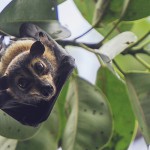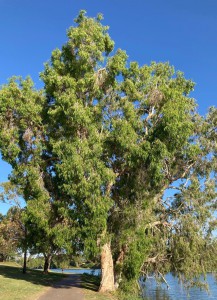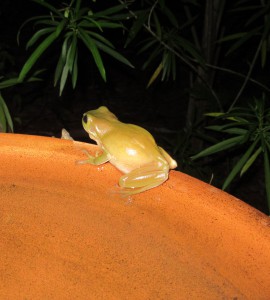Welcome to our October update. At my place the koels are waking us up at all times of the night, a sure sign of summer. Also at my place, the bower-birds are getting seriously busy with a lot of prancing and showing off and a great gathering of sticks. Whether or not construction of a functioning bower will result – who knows?!
SCHOOL STRIKE FOR CLIMATE: THIS FRIDAY 15th!! Join Townsville students at Strand Park for this rally, taking place 2 weeks before the COP 26 global climate summit. These students will be making their voices heard throughout Australia. Join those taking time out from school, Uni or work to tell the government we are ALL serious about climate action and we demand Australia takes immediate and just action on the unfolding climate and ecological crisis. From 9am at Strand Park.
Sunday October 24th: Cape Pallarenda Environmental Park. This month we will have a late afternoon ramble around the Graves Circuit at Cape Pallarenda. Meet at 3 pm at the far end of the old Quarantine Station picnic area, near the little bridge. We will tleave cars here and walk north over the bridge before following the track which circles around behind the Q-Station buildings, which were occupied successively by AIMS and then QPWS. There should be a pleasant onshore breeze and good shade at that time in the afternoon. Bring all the usual requirements – especially water, hat and walking shoes. Put some sunscreen and mossie repellent in your pack as well.
The account of August’s trip to the Ross Dam is posted here and the write-up of September’s Mutarnee field outing is in process.
Flying Fox Management – Urgent Reform needed! This week saw the release of a report which analyses the impacts Queensland’s current legislative and management framework for our beleaguered but oh-so-important flying foxes – and which demands urgent change. It is totally unacceptable that a group of animals so indispensable to the health of our precious ecosystems and to the many other species that need our forests and woodlands to stay healthy and diverse, can be subjected to damaging and harmful practices in the name of so-called “management”. Please see this post which also has links to the Report. I urge you to read it.
Mahogany Glider Recovery Plan: You probably also heard recently that the Federal Environment Minister. Senator Sussan Ley, has decided to abolish the Recovery Plans for many of our threatened species and replace each one with a Conservation Advice. The Mahogany Glider Recovery Team was anxious to find out what was happening with the long overdue, updated Recovery Plan for this species. It appears this plan is not one that is being scrapped, and despite what seems like a very long delay and the need for repeated briefings of both Federal and Queensland Environment Ministers , we are assured that the plan “is being progressed as a priority.” It certainly needs to be after the long, long years of delay and inaction. What a great Christmas present this would be for our gliders, not to mention the Recovery Team members, if it could come through before the end of the year!!
Townsville’s Tree Management Policy: On behalf of our trees and the wildlife which they support, thank you to those members who took the opportunity to “have their say” on TCC’s draft tree management policy. The Branch also managed to get our submission in before the closing date on Wednesday. When you stop to think of the many ways our urban trees benefit and enrich we humans, it seemed the least we could do by way of thanks.
Meanwhile the indefatigable Bernadette Boscacci from the Townsville Tree Advocacy Group has organised a meeting next week between interested parties and Council staff, at which WQ Townsville Branch will be represented.
Spotlight on Marine Ecosystems: The Cardwell community will place the spotlight on coastal marine ecosystems, especially the mangroves and seagrasses which provide important habitat for so much wildlife – dugongs especially. Marine scientists Dr Rob Cole, Dr Helene Marsh and Dr Norm Duke will be the key presenters at this event hosted by the Cardwell and Surrounds Progress Association (CASPA). This will take place on Saturday 30th October from 12.15pm at the Anglican Church Hall, 145 Victoria Street (Cardwell’s main street). Further information email CASPA or call Gabi on 0404-025139.
Are Aussie frogs suffering their own pandemic? One of Australia’s leading herpetologists, Dr Jodi Rowley, has sounded the alarm on a fresh wave of disease and death in Australian frog populations. Dr Rowley, currently the Curator of Amphibian & Reptile Conservation Biology at the Australian Museum, completed her PhD at James Cook University on the varying effects of the Chytrid fungus – though it is not yet known whether this is the cause here. Her concern was raised a few months ago when she began receiving reports of dead and dying frogs from the NSW mid-north coast. Since then 30 different native frog species are known to have been affected, including many already endangered as well as the very common green tree frog. Reports have come from several Australian states and, in Queensland, at least as far north as the central Queensland coast. Has this pandemic reached our region? You can read more in this article in The Conversation or this recent one from The Guardian – but if you find a very sick or dying frog, or have noticed a sharp decline in your own local frog population, do contact Dr Rowley and her colleagues at calls@frogid.net.au with photos if possible. Symptoms include: lethargy, emaciation, reddening or browning of skin, or being out in daylight hours and/or observed in unusual (frog un-friendly) surroundings.
Volunteers take care – Rakali is watching you! The following account of one lucky observation appeared among recent news items from CDTLI (Coastal Dry Tropics Landcare Group):
CDTLI volunteers have been busy removing invasive weeds at our Ross Creek site. Site leader, Jesse, also reported some delightful wildlife observations. “Whilst digging at a lone Ivy Gourd plant I was greeted by a curious Rakali (hydromys chrysogaster) who, after scampering a foot or two back into the mangroves, turned and stared at me as if to say “I was wondering when you’d get around to that!” We also spotted a possum nestled peacefully in a large Terminalia”
For those of you who (like me) might be wondering what strange creature Jesse saw, Rakali is one of the indigenous names for what we used to call the Australian or native water-rat – and is now the accepted common name. You can learn more about Rakali here and Google will bring up some images of this handsome, semi-aquatic animal. Thank you, Christine, for passing this item onto us – it’s great to be able to share wildlife encounters and observations with our readers. Please send us yours!!
And the good news….. Remember that old song about one man and his dog? But this pair aren’t doing anything as dull as going off to mow a meadow. Instead they are “off to save a turtle”, lots of turtles in fact, and having a thoroughly good time in the process. Great to hear turtle numbers are bouncing back as predateion from feral anumals is reduced. Read the story here.







